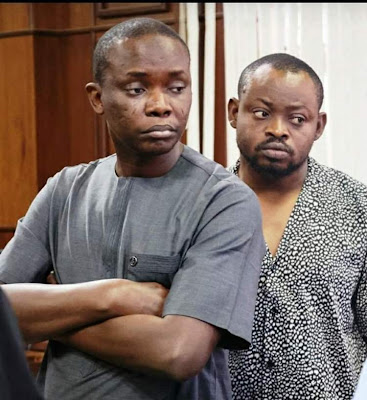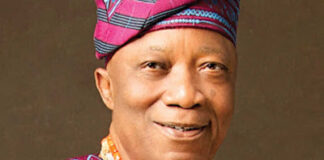A Coalition of activists on Monday came down on the Economic and Financial Crimes Commission (EFCC) over alleged money laundering in Kogi charge against Aliyu Bello, a nephew of Governor Yahaya Bello.
The coalition is led by a former president of the Nigerian Bar Association, Olisa Agbakoba, SAN.
The EFCC had on Thursday arraigned Aliyu Bello, alongside Dauda Sulaiman before an Abuja Federal High Court, over alleged N10 billion money laundering and fraud.
This elicited a reaction from Mr Agbakoba, who accused EFCC of a media trial and going out of its anti-graft war in Kogi, then eight other coalition members voiced out their support for Agbakoba’s claim.
The senior attorney had argued, “how a state spends its money should not be the business of the anti-graft agency”.
Mr Agbakoba said the EFCC’s recent case against Mr Bello’s nephew and the previous N20 billion bail-out controversy amounted to a media trial.
He said the Supreme Court had clarified the scope of the agency’s mandate as contained in Section 46 of the EFCC’s Act, adding it did not include state expenditures.
But the EFCC debunked Mr Agbakoba’s claims in a statement on Monday, when it expressed surprise over his “sudden change of attitude towards corruption in Nigeria”.
The commission’s spokesman Wilson Uwajaren said the lawyer was playing a “game of ostrich” by “continually harping on Section 46 of the EFCC Act.”
Mr Uwajaren said the lawyer ignored Section 7 of the same Act and various provisions of the Money Laundering Prevention and Prohibition Act, the Advance Fee Fraud and Other Fraud Related Offences Act, “which give the Commission power to investigate all fraud cases.”
Mr Uwajaren said Mr Agbakoba’s attempt to paint EFCC as a lawless entity and a meddlesome interloper, with no business probing the stealing of Kogi State resources, was unacceptable.
According to him, “sadly enough, Agbakoba couldn’t provide any evidence to support his claim that the EFCC has been lawless, nor did he mention any law which the Commission’s investigation of the finances of the Kogi Government violated.”
“But it is important to state that contrary to the views of Agbakoba, the Supreme Court at no time, delivered any judgement which forbids the EFCC from investigating fraud cases involving a state government,” Mr Uwajaren said.
Supporting Mr Agbakoba’s claims in a statement in Lokoja on Monday, the activists, who are leaders of various frontline anti-corruption organisations, including Centre for Anti-corruption and Open Leadership, Centre for Public Accountability, Coalition Against Corruption and Bad Governance, called on President Muhammadu Buhari to call the EFCC to order.
“This, we believe, would be a good move to save the image of the government as regards its commitment to an unbiased war against corruption.
“We unequivocally stand with Dr. Olisa Agbakoba, SAN, in his observations and call on the EFCC to review its operational methods in a way that will not compromise its founding principles.
“It must eschew every manner of political patronage and manipulation, which are bound to destroy its public perception locally and internationally.
“The Kogi issue that Agbakoba alluded to is one case too many. There is a strong suspicion that EFCC has a particular interest to cause chaos in Kogi by its fixation on the state and its affairs.
“Of course, singling out Kogi for an unending persecution of the Government clearly indicates that the EFCC’s job was not tidy but has given a loud impression that there is a political axe to grind,” the coalition said.
“The EFCC is an indispensable institution in the battle against corruption. However, we cannot look away if the Commission goes out of its primary assignment to stray into things unexpected of it,” the coalition said.
The activists, who signed the coalition statement, included Debo Adeniran, Executive Chairman, Centre For Anti-Corruption and Open Leadership (CACOL), Abiodun Sowunmi, Executive Director, Africa Labour Research Centre and Mark Adebayo, Chairman, Secureworld and Liberty Initiative for Peace, among others.
(NAN)













